Inspiring Exploration: NC State Hosts New Undergraduate Research Program
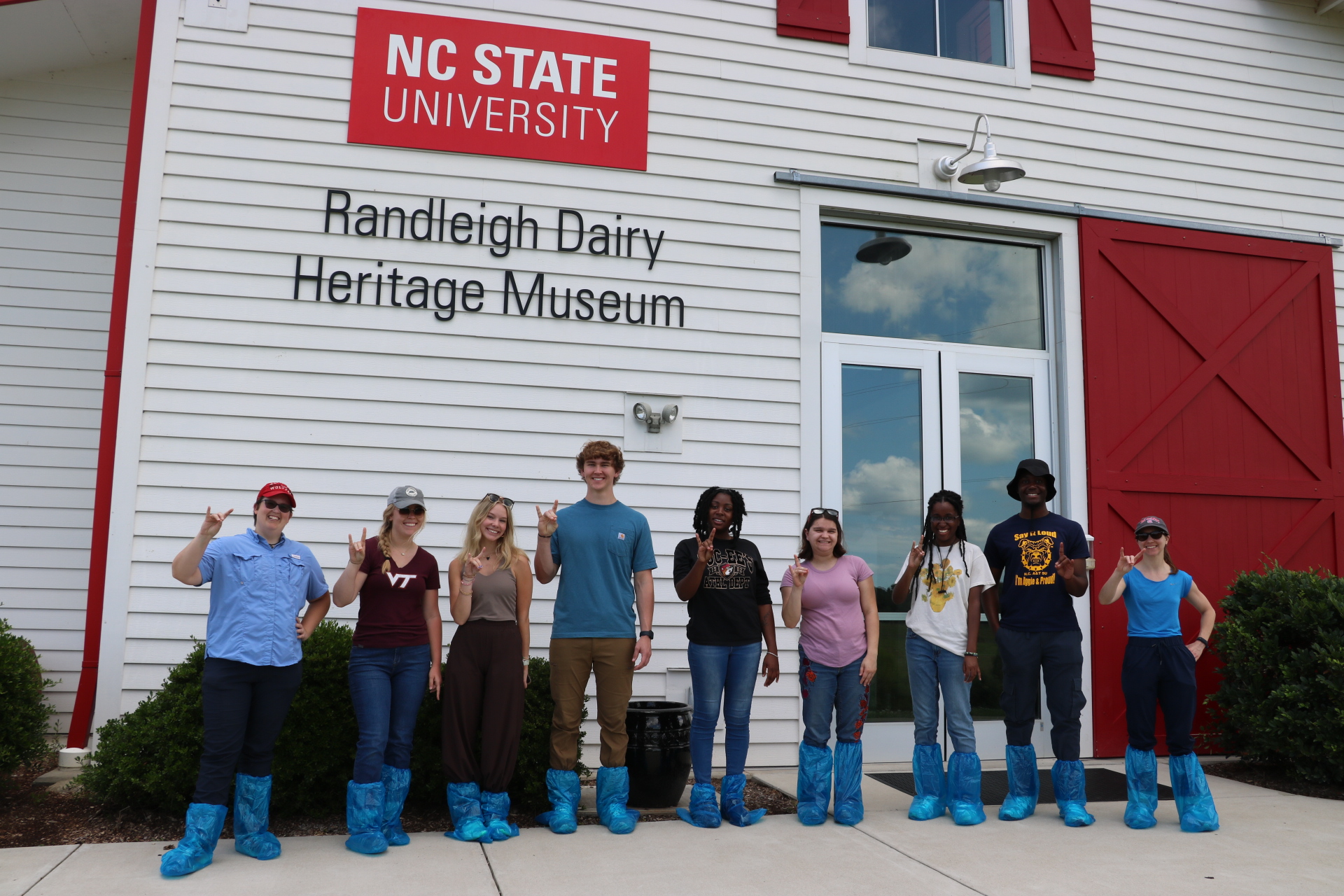
NC State remains a beacon of research and exploration long after classes let out for the summer. Although most students trade the brick-layered campus for getaways, the university stays busy all summer hosting camps, research groups and international scholars.
This summer Lucie Guertault, an assistant professor in the Department of Biological and Agricultural Engineering, led a new agricultural water pollution research program at NC State.
Undergraduate Training Where Science Intersects Practice and Policy to Address Grand Challenges in Agricultural Water Pollution (REEU-SIPP) is a 10-week program funded by the USDA’s National Institute of Food and Agriculture. This summer was Guerault’s first time implementing the program on campus.
Seven students from different universities spent the summer traveling to research sites and government institutions in France and North Carolina to learn about agricultural water management practices and policies.
The program prioritizes an interdisciplinary approach to give students a well-rounded research experience.
Arriving on Campus
At the start of the program each student was assigned a research project and a faculty member to mentor them. This year, seven faculty members from different departments made up the advising committee.
After a week of settling in, students toured facilities and sites around NC State’s campus. The group even toured the Lake Wheeler Road Field Lab Dairy Unit.
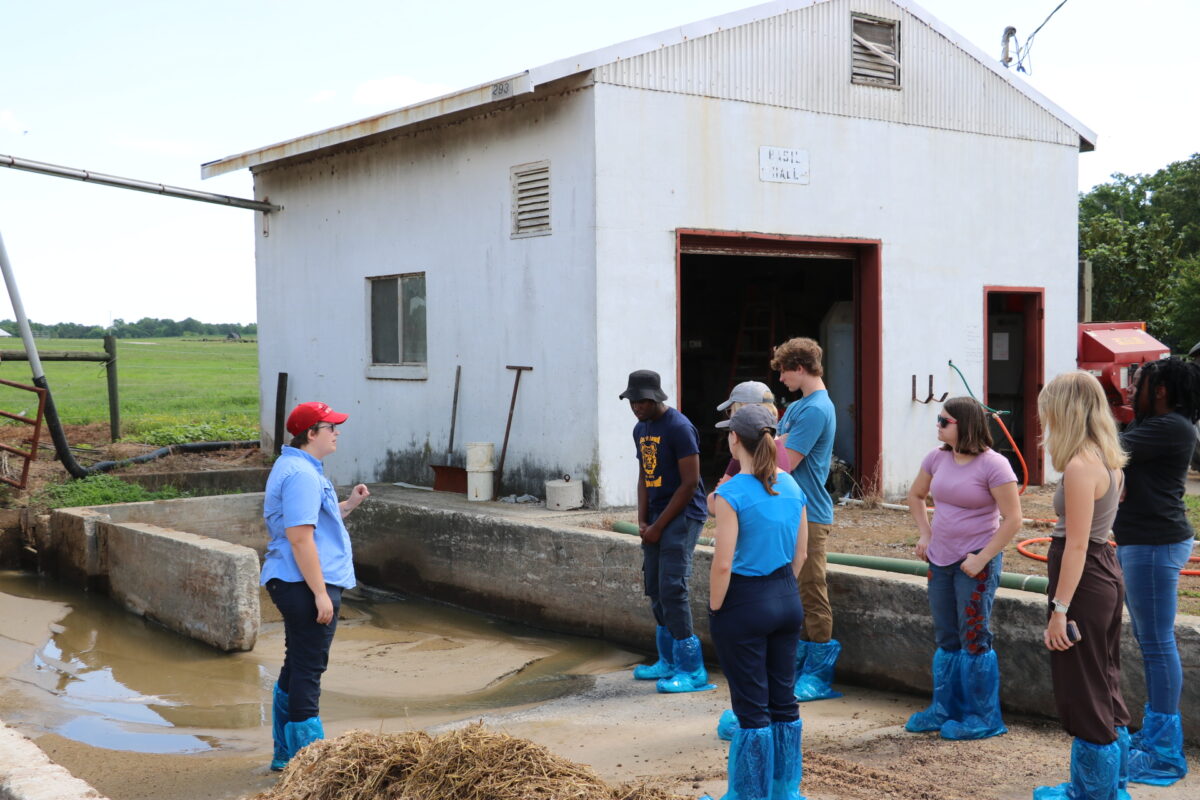
Stephanie Kulesza, an assistant professor in the Department of Crop and Soil Sciences (CSS), led a tour of NC State’s dairy unit. Students learned about the site’s nutrient management practices and how agricultural water management intersects with dairy production and waste management.
Kulesza also helped mentor Tucker Whitley, an NC State BAE and REEU-SIPP student, alongside Seongmin Park, a graduate student in CSS. They both worked with Whitley to help develop his research, “Impact of In-Season Poultry Litter Application on Nitrogen and Phosphorus in Runoff.”
During these first two weeks the group also learned about NC State’s extension model and met with their mentors to make a research plan for the program.
Over the Pond
After three weeks on campus, the group left for France where they visited government research facilities, universities and farms. Guertault led students around her home country to learn about the agricultural water management policies in France.
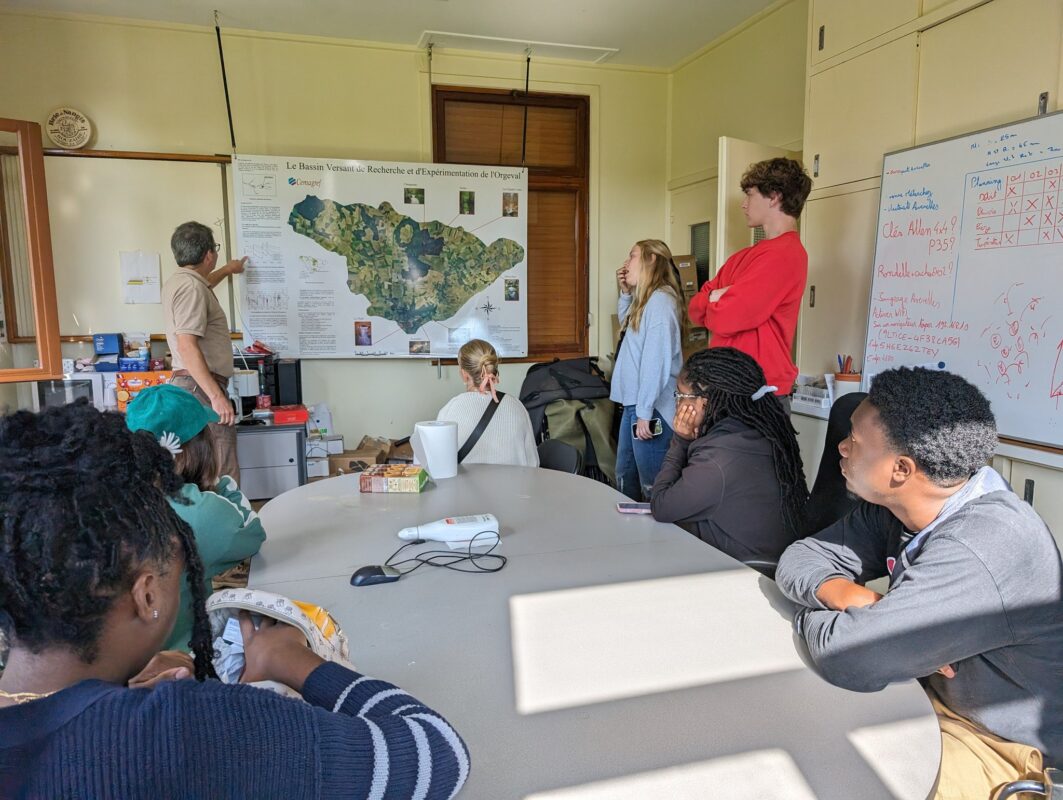
They visited wetlands designed for mitigating pesticide pollution from agricultural drainage. They also visited the French National Research Institute for Agriculture and Environment to learn more about agricultural water management policies in Europe.
Later in the week, Guertault’s family hosted the group on their farm. They learned about the farm’s history and the tile drainage system from the 1890s.
The trip also included touristic activities such as a boating tour on the Seine River in Paris, a tour of Saint Michael Church in Normandy and a free day in Paris.

“I wanted the students to have this experience in France so they could realize that the science is the same, but the application, practice and the policies are different,” Guertault says.
Back to North Carolina
After arriving back in Raleigh, the team set out to visit current BAE faculty research sites. The first site was Walnut Cove’s wastewater treatment wetland. Michael Burchell, a BAE professor and extension director, is the primary researcher on the site.
Built in 1996, the 4.2 acre Walnut Cove wetland is one of only a handful of wastewater treatment wetlands operational in the state. Over the last 10 years, the town has partnered with NC State University to study the function of the wetland in removing pollutants.
Burchell has been collaborating with the town of Walnut Cove for eight years. The facility runs the town’s untreated wastewater through a series of processes designed to treat the water.
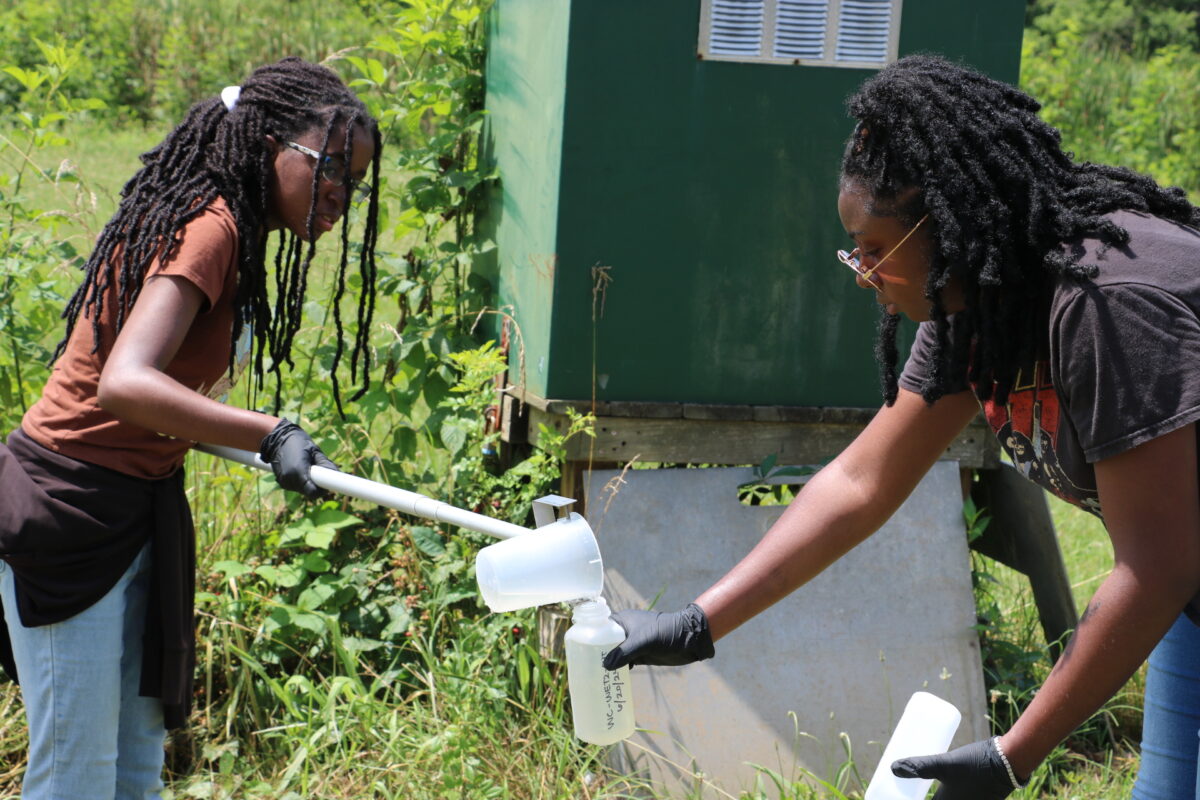
Study of the wetland has provided an opportunity to improve the understanding of the long-term treatment potential and evaluate maintenance practices to extend the treatment life of these wetlands. Research sites like the Walnut Cove wetland are important to promote more wide-scale acceptance and implementation of constructed wetlands at other rural wastewater treatment facilities across North Carolina.
While the students were at the site, they helped collect and organize samples. The students started sampling at the wastewater inflow lagoon. Then they made their way to the Duckweed Raceway where nitrification and assimilation take place. Finally, the students took samples at the constructed wetland where the water sits before it is discharged. Students compared the water quality from start to finish.
Sierra Rowe is an REEU-SIPP student from Fayetteville State, and she worked with Burchell during the program.
For Rowe’s research project she studied the process of using biochar to remove nitrogen from wastewater. “We are testing different concentrations of 30%, 40% and 50% hydrogen peroxide biochar and with this we hope to capture ammonia in the wastewater by doing several experiments to learn more about their interactions,” she says.
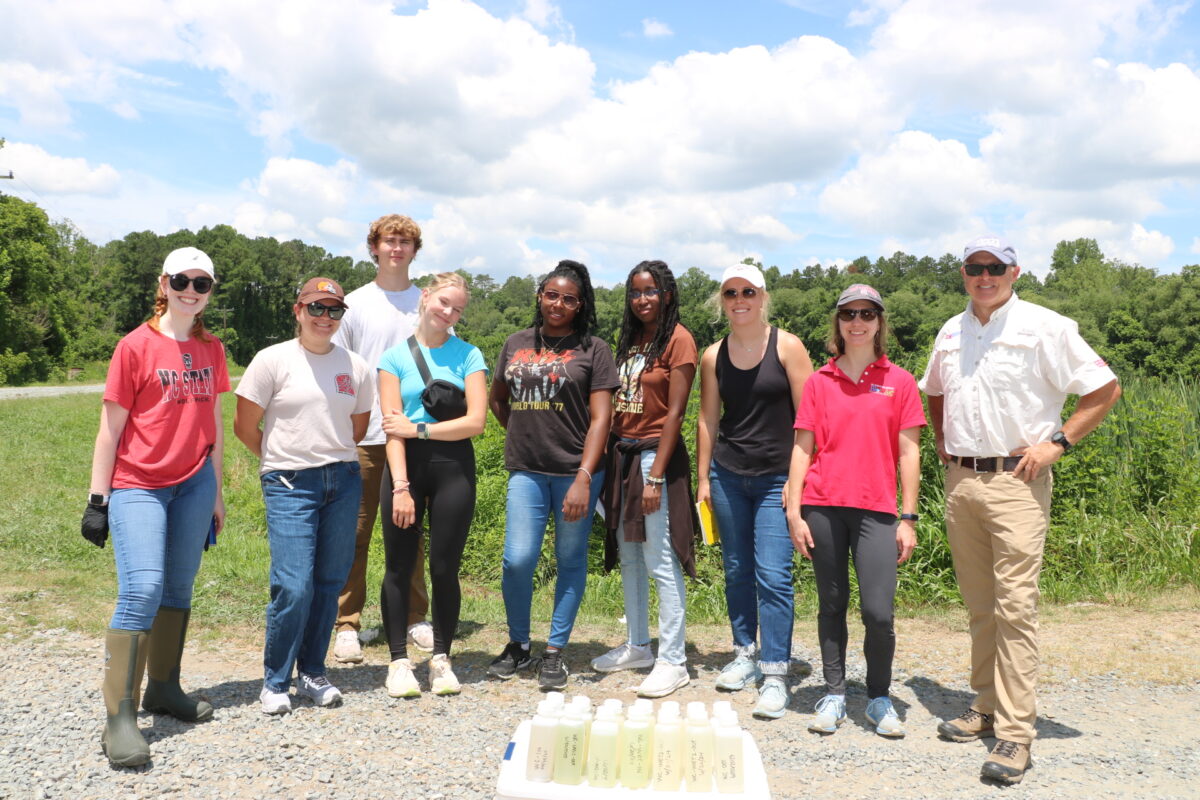
Rowe’s findings will be added to Burchell’s data collection.
Tidewater Research Station
The Tidewater Research Station is home to a vast array of projects on its 1,558 acres of woodlands, croplands, pastures, ponds and facilities. Chad Poole, a professor in the BAE department, gave Guertault’s group a tour of the facility. Poole and his team shared data they have been collecting from three different water stress condition corn fields.
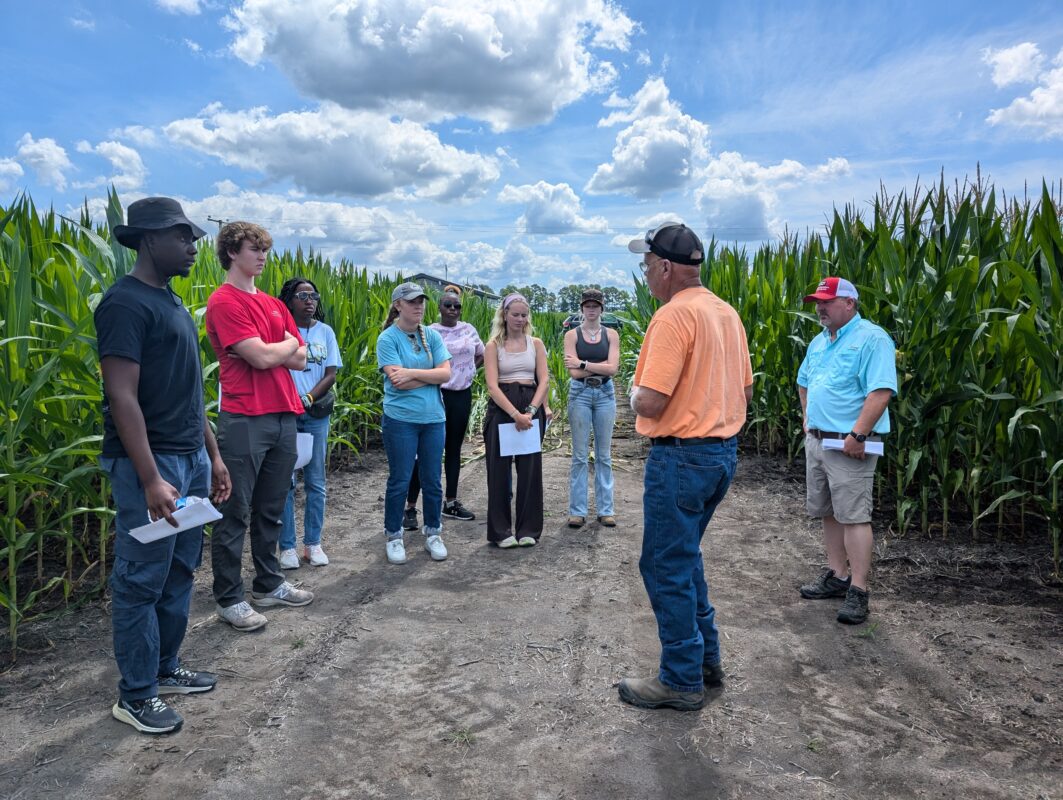
One field had ideal conditions with the right amount of irrigation and drainage to create optimal conditions for crop growth. The second field had a very high water table, and the third had very dry conditions.
Poole explained that this will help investors and researchers understand which corn varieties flourish in certain environments.
“Depending on where you are across the state, you have different weather patterns and soil patterns,” Guertault says. They hope to show the benefits of drainage and come up with suggestions of which variety is best based on different patterns and conditions.
Nina Nebesh, an REEU-SIPP student from Ohio State University, worked with Poole throughout the course of the program. She designed an affordable device that measures water table depth in fields.
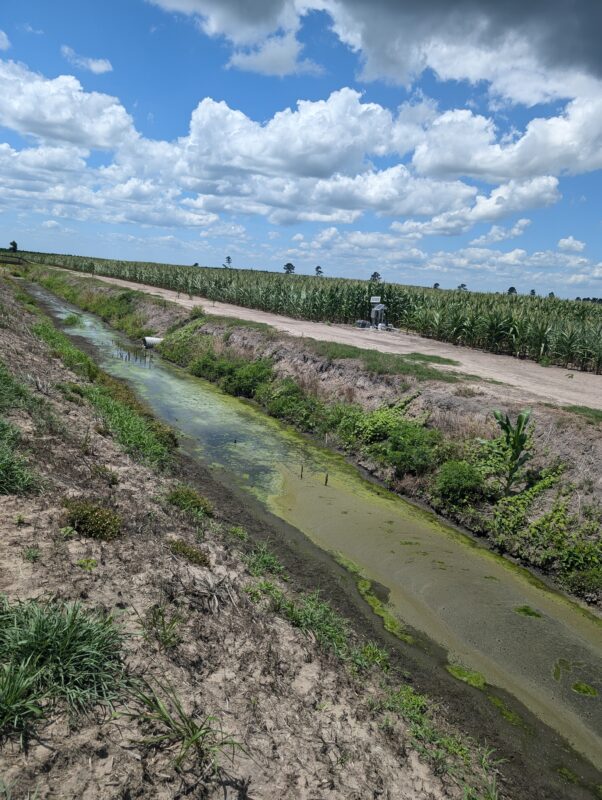
Nebesh says, “the water table is where the groundwater sits, and you don’t want the water to enter the root zone of where your crops are, because your crops will lose oxygen.”
She explains she wanted to design a device that could give farmers feedback in real time. This will allow farmers to adjust their irrigation and drainage systems according to conditions.
Research Presentations
As the 10-week program came to a close, the students got the opportunity to present their research projects to the program’s advisory board.
Nebesh explains fine-tuning a real project is a helpful hand-on experience. “The biggest thing for me has actually been getting to use all the things I learned in my engineering classes and putting it towards a project,” she says.
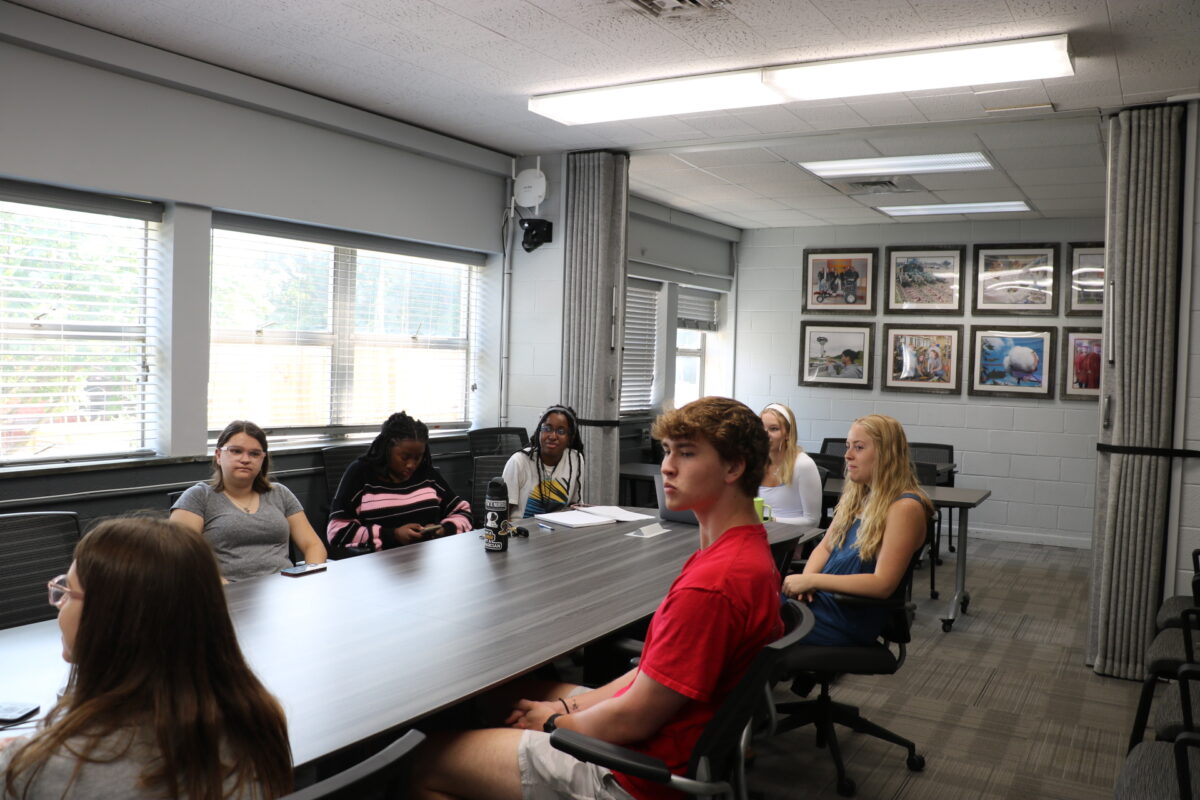
“Research can influence policy or decision making because everything is linked, and making students aware of that will allow them to work at the interface,” Guertault says. “I want each student who goes through the program to leave with a broader perspective.”
The program will continue next year, and applications will open in November.
- Categories: